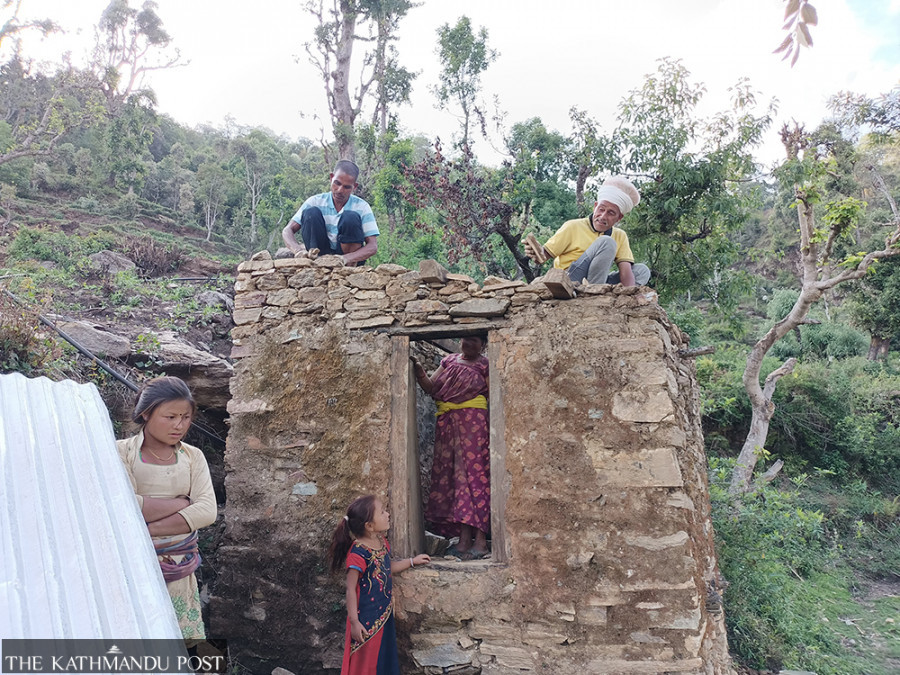Editorial
Whack-a-mole
The practice of Chhaupadi won’t be removed with the current top-down approach.
On January 22, 2020, the federal Ministry of Home Affairs directed the administration in 19 districts of Sudurpaschim and Karnali provinces to destroy Chhaupadi sheds where menstruating women are traditionally confined. More than 8,000 of these huts were torn down, and around 100 local units were declared Chhaupadi-free. But most of these destroyed shacks have sprung up again, as if by some cruel magic. In fact, many such Chhaupadi-free campaigns have come and gone, yet women in remote western Nepal continue to be confined to chhau sheds during their period. The practice has been illegal since 2017. The Civil and Criminal Code provisions a three-month jail term and a fine of Rs3,000 against anyone found guilty of forcing a menstruating woman to live in a Chhaupadi shed.
For a good reason. Menstruating women, who are banished from their homes as “impure”, often succumb to wild animal attacks, snakebite, suffocation and bitter cold. The government as well as various national and international organisations have thus far poured millions of dollars into tearing down the menstrual huts and awareness campaigns. The efforts, however, have fallen short in bringing about behavioural changes and stopping the practice. Often, the destruction of the sheds has worsened the problem, shifting women to open fields and caves during their period, and pushing them to rebuild the chhau sheds.
The measures to tackle the problem are not working for several reasons. As the practice is primarily associated with a religiously-linked notion of impurity, it has been hard to root it out. People don’t easily change their religious beliefs, and the more entrenched they are, the harder they are to shed. And they certainly don’t want to “anger” their gods.
Western districts like Achham, Doti, Bajura and Bajhang where Chhaupadi is practised lack the kind of education and awareness necessary to make a meaningful difference. Even the women who want to discontinue the practice are often not supported by society and family. One reason for this is the top-down approach of Chhaupadi eradication. The federal government lays down laws and expects the police to enforce them. It would be a much better idea to start the campaign bottom-up. Let the local government representatives do the legwork, of going door to door, making people aware of the dangers of the practice to women’s health and wellbeing. Of course, such an approach will also not work overnight. But it will be far wiser and more sustainable than the current top-down model.
In addition to such grassroots level awareness campaigns, there is also a need for regular monitoring of the so-called Chhaupadi-free areas. Again, the greater the number of locals involved in the process, the better. For this, among other things, it is vital that the local governments are trained and given enough resources to spread the message of dignified menstruation.
Lastly, even though the use of force should always be the last resort, it should not be out of bounds. Seeing your relatives and neighbours penalised and even jailed is sure to make many families rethink the practice, and give their wives and daughters the dignified menstruation they deserve.




 9.89°C Kathmandu
9.89°C Kathmandu














